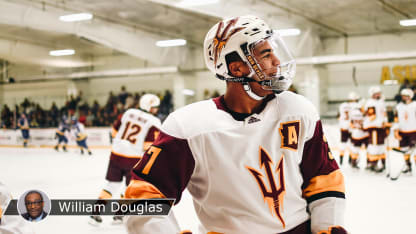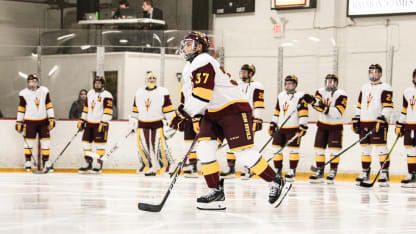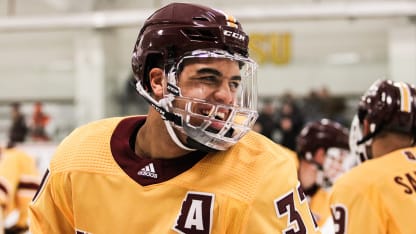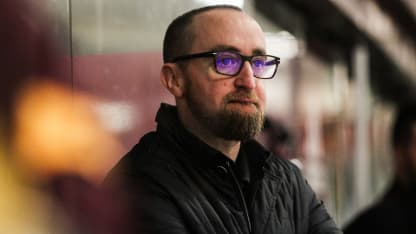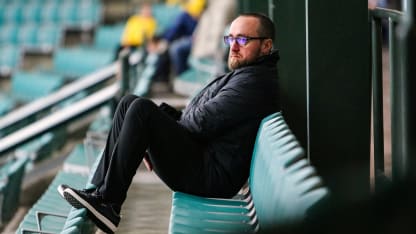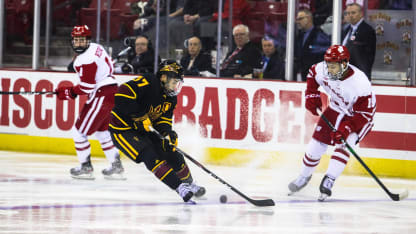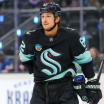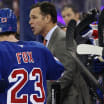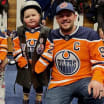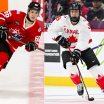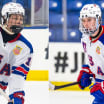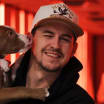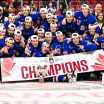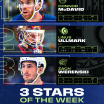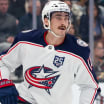The statement was a heartbreaking revelation that shocked Garcia's teammates, coaches and family. He said that that his experiences at Arizona State have been positive and never told any of them about the racist abuse that he experienced that began in his first year playing ice hockey after transitioning from roller hockey.
"I had my parents -- but as much as they can help, I'm the first in my family to play hockey so I felt like I was kind of alone in that regard," said Garcia. "It just seemed easier to keep it to myself and battle through it rather than reach out to a coach who might not know about what I'm going through that could really offer anything, or I thought couldn't offer anything. So I decided to keep it within."
Ironically, ASU has one of the more racially diverse rosters in NCAA Division I hockey. Garcia's teammates include forwards Jordan Sandhu, a Canadian of Indian descent, and Peter Zhong, who was born in Beijing and played for China's national team at the IIHF World Championship Division II in 2017-18.
"I think there's kind of like an unspoken respect like we realize we're minorities in the game and so each of us know if anything ever came up we'd be able to talk to each other about it, but it's never come up," said Garcia, a defensive specialist who has scored 16 points (four goals, 12 assists) in 97 NCAA regular-season games. "It's unspoken, they know, we've all been through the struggle to be where we are."
